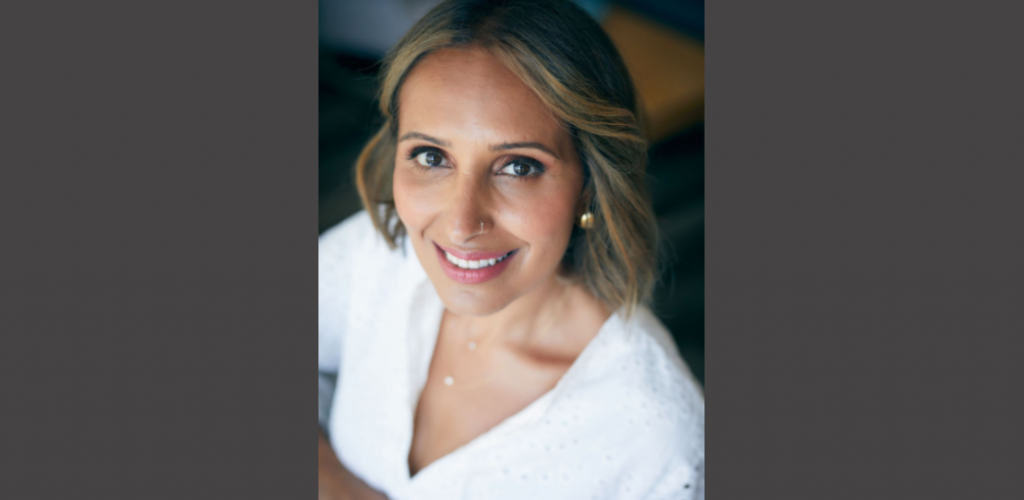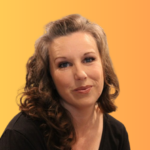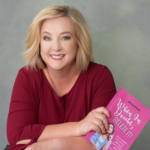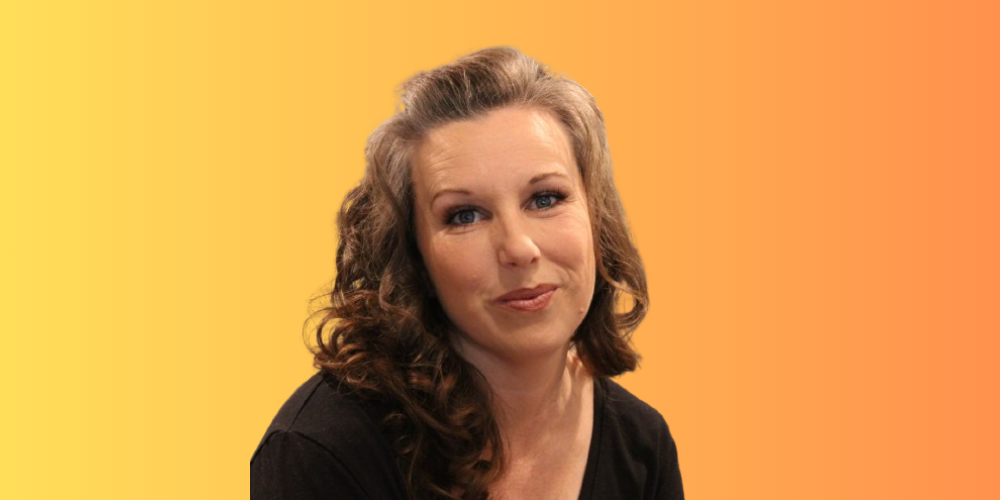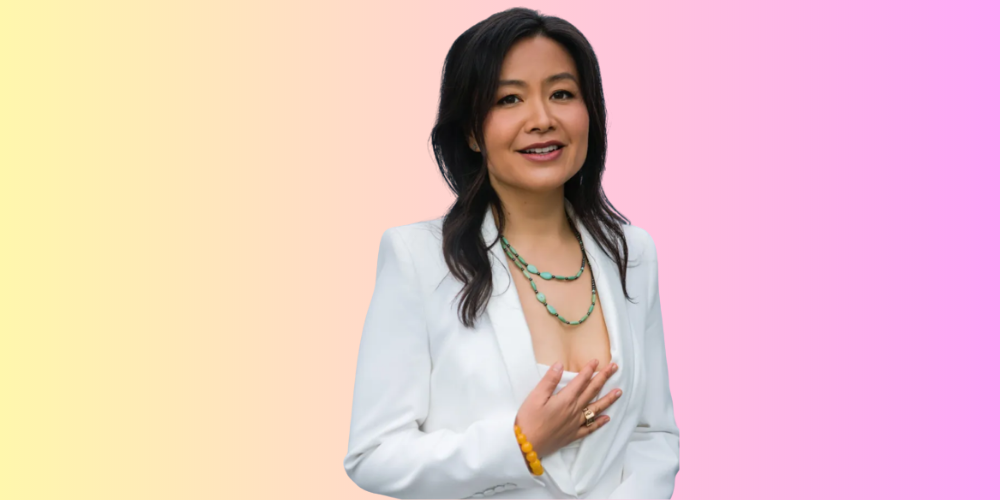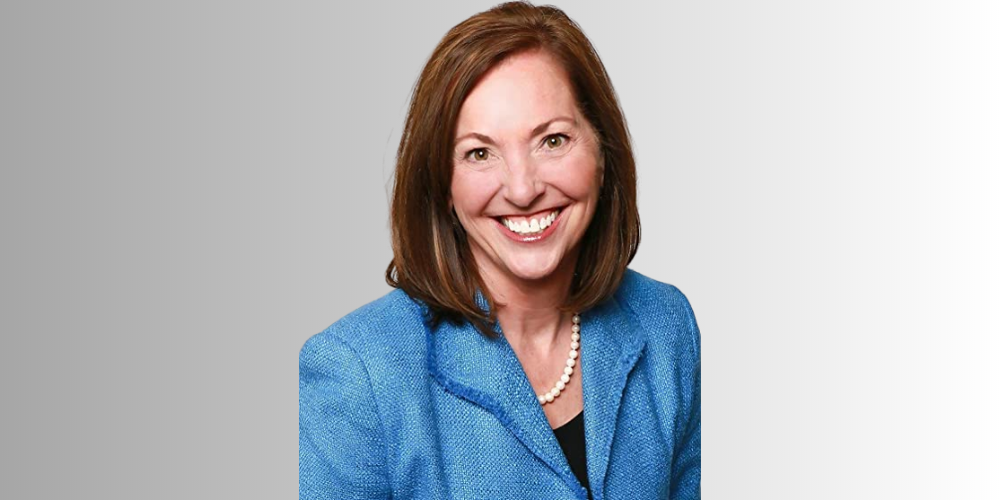Raj Girn: My guest today is a long-time friend and colleague, Dimple Mukherjee, who is an occupational therapist, life coach and published author.
Here is Part Two of our conversation:
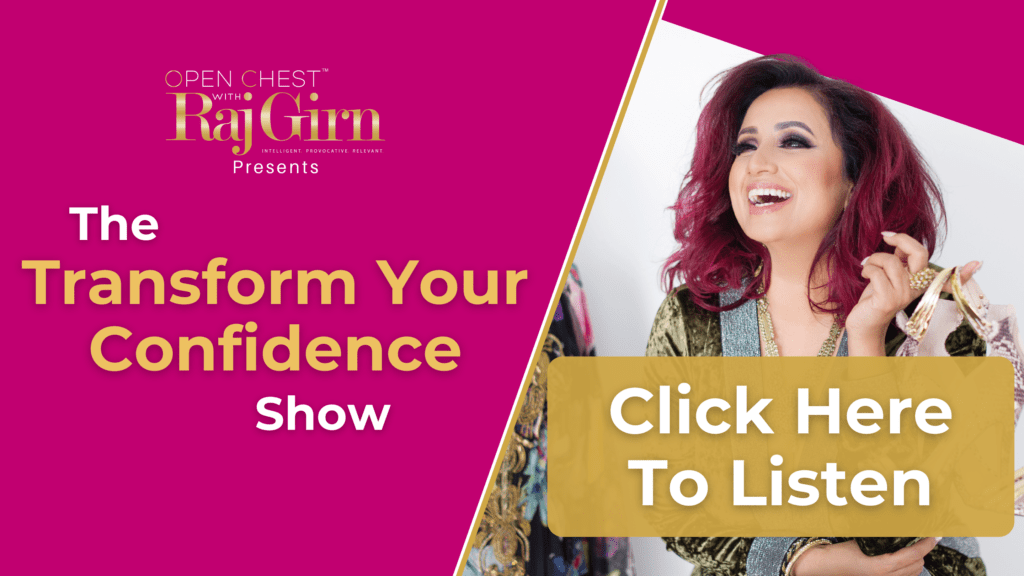
Raj Girn: You’ve documented coming to terms with being honest with yourself, something that in strong cultures, it’s not really something that we’re taught how to do. We’re taught how to fit into, like I mentioned earlier, a box created by someone else, a one-size-fits-all. You’ve written a book that kind of talks about this journey. Can you tell us a little bit about the book and what that journey is and where people can pick up a copy?
Dimple Mukherjee: Sure. So I have two books now, but I think you’re talking about the first one around shame.

Credit: [email protected]
I am.
Yes. Okay, so.
I need a copy of the second book.
Yes. Yes. I will definitely direct you and I will send you one, actually. So I had written about shame and my experience around having an affair during my marriage and I’ve had so many learnings since then, so there in the book and there in the second version as well. But it was really around how difficult it was to be vulnerable, to find a community that was nonjudgmental as well as being able to get through probably one of the hardest periods in my life while staying afloat for my children, for my family, but really putting on the strong front, that was really a façade. And I talk about how shame really holds you back from getting to the next step that you’re supposed to be getting to, and it holds you back, it doesn’t allow you to connect with people at a true level or a vulnerable level. And a lot of the work that I came up with and the content I came up with in the book was really based on the work of Britney Brown, who talks about vulnerability and talks about how shame will hold you back. And it won’t allow you to just navigate your way through the messy middle.
And so I write about my experience and how exercising self-compassion was really, really important for me to get out of that shame story, as well as how being vulnerable about it and sharing my experience through it and not necessarily justifying myself, but really what was that journey like and what to do when you’re in the position of shame and how do you navigate that to get to the next level of growth that is waiting on the other side for you. And that took me many years. And I wrote the chapter that I co-authored in the hopes that anyone else who’s feeling shame can learn from what I experienced and recognize that it takes a lot of courage. So I talk about the three Cs. It takes a lot of courage to step into a zone where you can allow yourself to be vulnerable. It takes a lot of compassion, specifically self-compassion, which is really hard for us to do. What research has shown is that we’re really able to self criticize ourselves, which is really not a helpful tool. And self compassion is actually a research tool that can help you go a long way and is sustainable. And the third C is community, finding your people
“We’re really able to self criticize ourselves, which is really not a helpful tool. And self-compassion is actually a research tool that can help you go a long way and is sustainability.” ~Dimple Mukherjee
Right.
The right people. So I wrote my experience, and it’s titled Shame, about that affair because the only way to eradicate shame is to talk about it. And that was the purpose, as well as sharing with others so that they’re feeling less alone, because let’s face it, I’m not the first one to have to go through this experience. I’m definitely not going to be the last. And it’s about how do you normalize and not judge people on their lived experiences that aren’t always so quote-unquote positive, but are able to become a better version of themselves because of that experience is how I see it.
So what is this book called and where can people pick it up?
On my website. It’s called Women Rising Volume 3. But I’ll give you a link to my website and you can directly get it from there, which is a link to Amazon. So it’s on Amazon under my name. If you just Google my name or search it, my two books are there. The first one is ‘Women Rising’ and the other one is ‘Inspired Living.’ So they’re both coauthored books
At DimpleMukherjee.com, right?
Yeah.
Brilliant. So let’s tap into a couple of tools. There is this new course, I mean new to me in terms of me coming across it, that you’ve put together which kind of distills some of your experiences. Folks, if you’re just joining us, we are talking today about how to create wellness through using the right tools to change your narrative. This is the title of our two-part series, and I’m in conversation with the fabulous Dimple Mukherjee, who is a wellness coach. She is a published author and she’s also an occupational therapist.
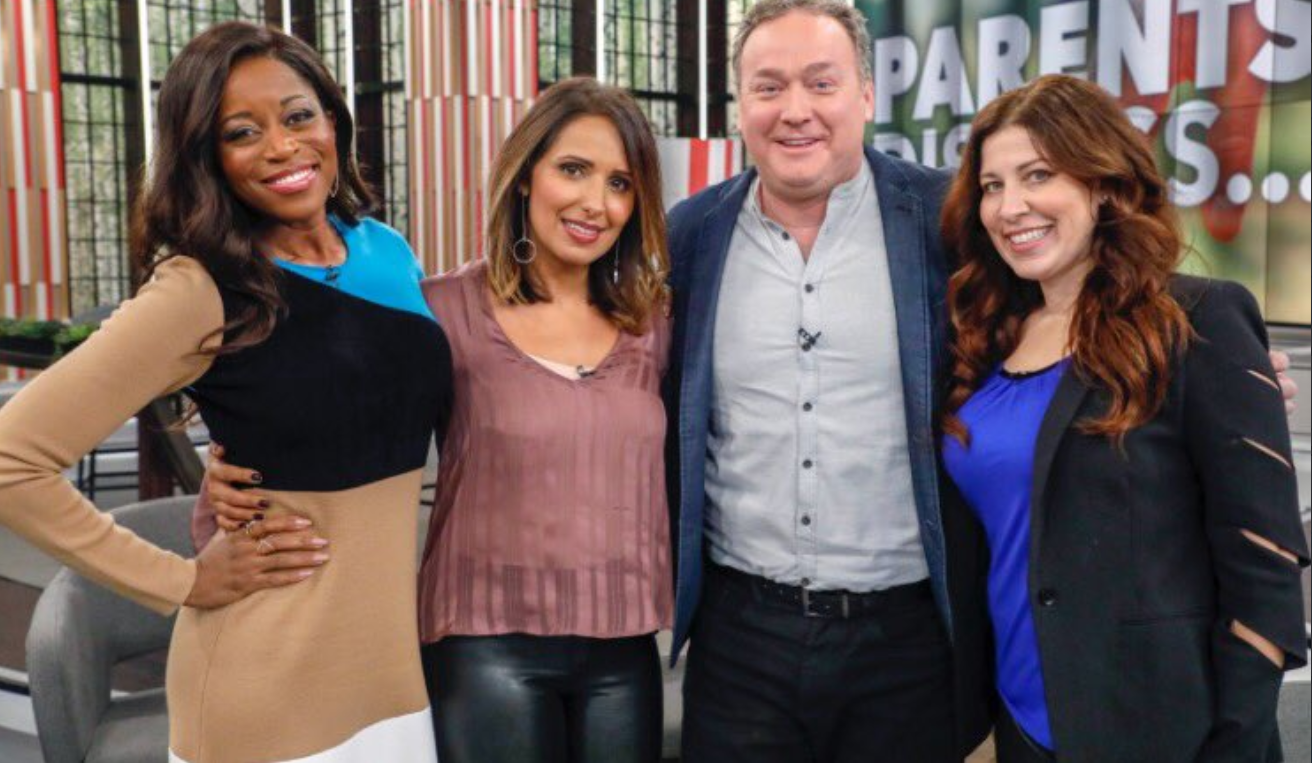
One way that you did this Dimple, in terms of figuring out what that is for you, has been distilled down in this course called Call In Your Word, which I think is an awesome title. Again, folks Call In Your Word, which is a neuroscience-based course that Dimple has distilled down so that anyone can tap into its specific intentions. So Dimple, take it away, sweetheart. Share with everyone what this course is, what you hope people will accomplish from it. And why did you feel that this was something that was needed? I really do feel it comes back to your lived experience, comes back to, I guess, a lot of people that you’ve also worked with. So talk to us about this.
Yes. So after a period of darkness, I had quite a lengthy period of darkness. I was in search of some light. I think that’s very normal. And I was in search of a better way of being, of living and just finding more joy and happiness. And, of course, this word of the year concept fell into my lap there. I don’t believe in coincidences. I think there’s a lot of synchronicity that happens. And it was 2016 in January and I learned about this process. So it’s not a process that I develop or the concept of the word of the year, but the program that I developed is my own and. I thought, hey, this is kind of cool, so it was meant to replace New Year’s resolutions. So that’s really how this practice came to be, this concept of word of the year.
I noticed a few people were starting to engage in this and I was curious. And so I went ahead and I was following a blogger at that time. Her name is Susan Conway, and she was really the inspiration behind my participation in this process. So it was January 2016, I was finding a new way to be. I was ending my relationship with the person that I’d had the affair with. I was ready to move on and I called in the word love. That is the first word that I’ve ever called in. And so I’ve been in this practice, for now, five, six years because I called in the word early 2016. And the intention, from my word love was really to cultivate not another romantic love or to kind of just manifest, for me it was more about self-love.
I had heard the term being thrown around a lot. I thought actually that I was doing self-love. But self-love is so much deeper than many of the things that we think we’re doing is cultivating self-love. It’s a way of being. So I went on that journey. I took myself out on a solo date, all because I had this word at the forefront. And the solo date was quite interesting. I have a whole blog piece around that. I can share that with you.
“Self-love is so much deeper than many of the things that we think we’re doing is cultivating self-love. It’s a way of being.” ~Dimple Mukherjee
Oh, I love this.
Yeah, it was one of the best times of my life. I had to actually dress up and pretend I was going on a date. There was no cheating. I couldn’t take a journal. I couldn’t take a book. I couldn’t take a phone. I had to be dressed up and then go sit alone at a restaurant. So that ended up being a great experience, many cool people. And then by the end of the year, I actually did fall in love. So that wasn’t something I called in, but that was what ended up happening. And I think that’s the beauty of having a word of the year. And then from then it just snowballed.
I decided the following year, I’d love to do this with my friends. So I had them over and I thought instead of just gathering end of the year kind of Christmas celebration, let’s do something a little bit more intentional. So the night ended up being six hours long instead of the two hours we had so much to share. And then it became something that I offered to the public workshops. And now it’s become sort of a do-it-yourself online course, as well as there are live components to it towards the end of each year. And it’s a practice that has really provided me with tremendous value and for others. And I can go into the reasons why, if you want me to.
I would love for you to.
Okay, great. Now, basically having a word of the year is something that our brain loves, so that’s where neuroscience comes in, our brain loves primers. Primers are just quick things that remind us of what it is that we need to do and why we had set this primer in the first place. So because of that, our brain loves it. A word is short and simple. It encompasses all aspects of your life, unlike new year’s resolutions, which could be just like I want to lose 10 pounds. That is just one part of who you are. You are not your weight. And so having a word of the year allows for encompassing all parts of your life. It allows you to really have deep, rich conversations really fast, because if somebody comes and asks you what is your word of the year or if that becomes sort of the prompt at a gathering, you right away know what it is that makes that person who they are.
And that’s my favorite piece of having a word, is that it allows for a community. Your word allows you to reconnect with your value and purpose on a consistent basis, because that’s sort of the steps that I go through in the do-it-yourself course. We really do look at your values and purpose before you call in your word, and it really gives you a tool like it’s so tangible that it is actually quite universal. Normally I had this question asked me. I just did two workshops for Amazon on the Word of the Year. So I’ve expanded out to organizations and corporations who are really looking at this tool as a mental health tool for wellness. So it comes under the umbrella of mental health, which is what I love and it’s fun.

It is not one of those, “oh, I have to journal or I have to meditate.” Even though I love those tools, I know these tools are hard for people. So it’s very tangible. Men love it. That was one of the questions I got from Amazon was how do you basically convince everyone that this is a great tool? I go, “you know, it lends to itself, it’s just it’s a word and it’s a very easy practice to adopt.” And so if there’s nothing else you do with your word and then just call it in right away, they’re synchronicities to show up in your life. But you can go further and you can live your word. And I have more tools on that as well. But that’s something that I expanded on during our pandemic here when we were sitting around with nothing else to do.
No, that’s wonderful. And it’s funny because it’s when you have nothing else to do that you do the things that you actually need to do. Rather than all the stuff that we think that we need to do.
Yeah. So that’s sort of in a nutshell about that practice.
And this course is also available on your website at dimplemukherjee.com?
Yes, it’s under the Word of the Year. I have a whole section on it. In addition to more offerings, once you call in a word, how you can live it.
Oh, my God, I love it. I think I need to go check out that. Guys, I encourage you to go check it out because we’re always so kind of bombarded and find it a daunting task to build our personal wellness practice. But it’s these very simple ways of looking at complex concepts that help us to really start to open the door towards where it is that we need to go. So don’t make things complicated. I feel that this is kind of a really great message that you’re sharing with everyone, Dimple. Don’t make the journey complicated. Let it unfold with opening the door ever so gently and slightly and see what you’re able to kind of deal with at that time and then just keep opening it wider and wider. I feel this course is going to help you open that door at the very least.
“Don’t make the journey complicated. Let it unfold with opening the door ever so gently and slightly and see what you’re able to deal with at that time and then just keep opening it wider and wider.” ~Raj Girn
Beautifully said. I couldn’t have said that better.
Well, I want you to put that on your website, please.
Okay, I can take notes,
No, it says the marketing person. Right. You know me.
I know.
So let me know before we close off on this particular subject matter, let me ask you this Dimple. What are some other tools people can tap into to encourage optimal wellness and adapting our inherited wellness or maybe adopting? I don’t think so. I think adapting our inherited wellness to a self-cultivated one, which is everything that we’ve been talking about today in order to change our own narrative?
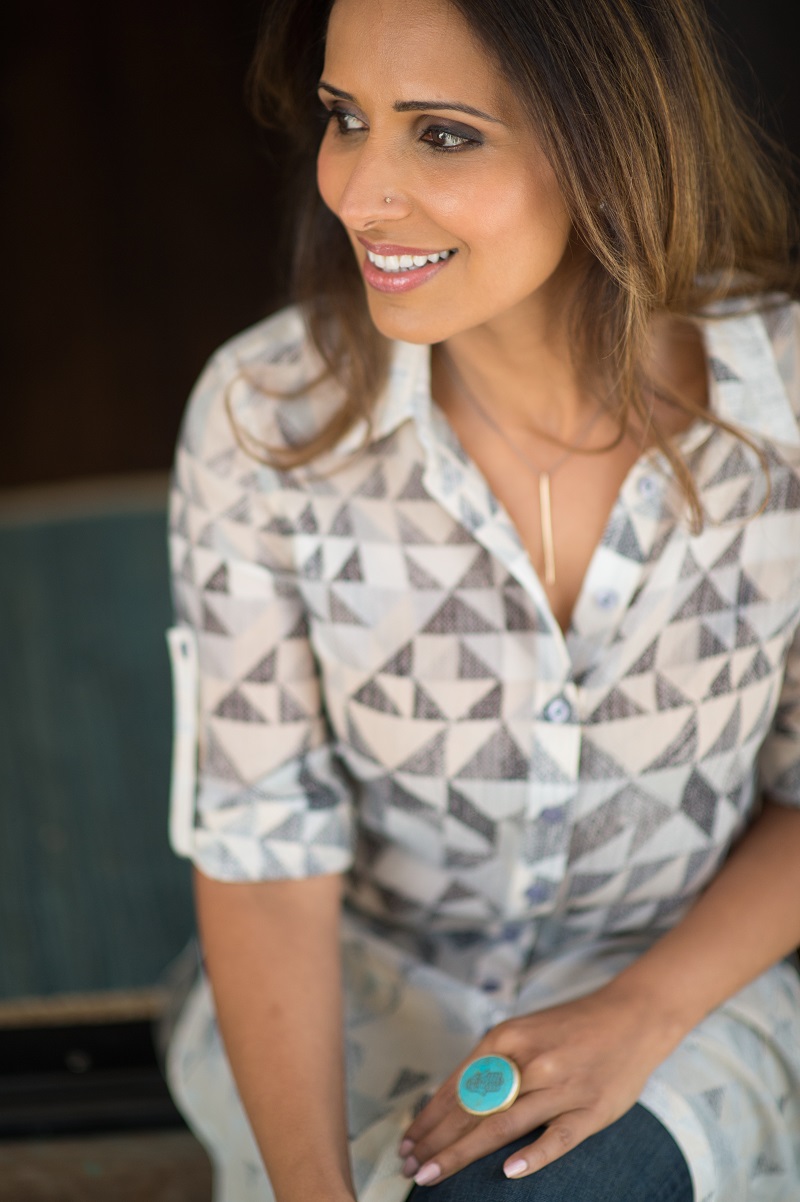
There are many ways I can answer this. I am actually, before I forget, going to share with you because this is very timely. I actually created a free downloadable PDF that is titled Nine Uncommon Tools to Help You Reclaim Your Health and Wellness. And that was just recently developed in response to individuals and organizations who are asking how do we take care of ourselves, especially during this time of pandemic. It has not been easy, certainly not mentally for many people. We have to prove that and they’re quite disheartening. So in there, there’s a lot of tools. But I would say my own personal favourite tool is journaling. I don’t always do it. I’m not someone who will claim that I do it every single day, even though that is my goal.
So I exercise self compassion when I can’t do it. But I find journaling is a great way to really release anything that is sitting in your body. I look at it as a release tool, so I think it’s really important that we get things out of our bodies and into whatever form of expression we need to do that with whatever your favorite form of expression is. So for me personally, journaling is one of those expressions and there’s a lot of research behind why journaling works. So journaling, when you’re happy as well as when you want to vent is just as important. There’s always . . . I hesitate to talk about gratitude practice because it is very important.
Robert Emmons is one of the top researchers who does talk about gratitude as a science, but with the caveat that you don’t always have to be grateful. I think it’s really important we don’t go down the road of toxic positivity so that if you’re having a rough time or if you’re grieving or if things are pretty crappy to allow yourself to be in that zone and you don’t always have to just quickly like a robot transition into gratitude. I think that’s important thing to talk about.
“It’s really important we don’t go down the road of toxic positivity so that if you’re having a rough time or if you’re grieving or if things are pretty crappy to allow yourself to be in that zone and you don’t always have to just quickly like a robot transition into gratitude.” ~Dimple Mukherjee
I think that’s such an important thing to talk about. I just want to just emphasize that a second, because there are a lot of kitschy kind of concepts and words out there in pop culture and people kind of grab hold of them and they they put them into the wrong context. I mean being in gratitude if you learned from the positive or negative is a good thing. But being in gratitude in a dark place is not where you want to sit because you will stay in the hole that you’ve dug for yourself. I feel that that’s kind of what you’re saying. Can you share a little bit more on that? Because I think that’s an important point.
It is very important. And I think it relates also to, if we circle back to when I said that pain is information. I think when we try too much to stay positive or be positive, we’re really not listening to ourselves. We’re really undermining those difficulties that we’re having that we really need to work through them with support. I’m a big believer of therapy. A huge advocate for it. I don’t think you actually have to be unwell, quote-unquote, to do therapy. I consider it as a personal development investment, and it’s really great to have unbiased, objective, professional support as you’re working through things and exploring things in your life to gain perspective. So I think it ties to that point about pain is information.
And yes, it is important to express gratitude, to engage in that practice, but not to forget that all feelings are valid. All feelings have a place in your life and they come at different times, different season. So those things are important. So I wanted to say that because I used to talk a lot about gratitude practice and it is important. It is still important. But with that caveat, I also think that there is things that people can do that they may not necessarily think of as wellness tools. But dancing, cooking, things that allow you to really experiment. It gives you a safe space to really bring out what’s inside. And people typically don’t think of that. But I spent this whole pandemic in my kitchen doing all kinds of things. And it’s been an amazing journey and it’s been very fulfilling. I think the key is that we’re looking for fulfillment as part of our wellness journey too not just joy and happiness.
“We’re looking for fulfillment as part of our wellness journey too not just joy and happiness.” ~Dimple Mukherjee
Right. Oh, my gosh. Oh, my gosh. Say that again. Say that again.
So I think that we’re all looking for fulfillment just as much as we’re looking for joy and happiness and they are different.
Absolutely. There are so many tools available to us, right Dimple? We just have to have the courage to just step into the unknown. You are also a life coach, right? We’re getting ready to close off. I want people who are having a lot of aha moments here that want to maybe explore some of this stuff that we’re talking about and that you’re bringing to the conversation. Can we see how people could potentially work with you? Do you work with people on that capacity, one-on-one or in other formats from a life coach perspective? Because you’re a wellness coach as well, right? Can you share that a little bit with everyone?
Yeah, you know, that’s something that I had to think about quite thoroughly and come up with some clarity because I’m a coach that has a medical background. So that’s the beauty of the live coaching with me is that you also have the expertise of illness, someone who can sort of foresee who can see the red flags, who can direct you, who knows the system, values wellness and values preventative medicine. So I think that’s sort of my uniqueness. And I actually don’t do a lot of individual work. I reserve them for clients that highly value intentional living, highly value personal development are going to make the space and time and be consistent and are not afraid of doing hard work. And that’s sort of who I reserve my one-on-one work with.
And then I love the power of groups. Yeah, that is my favorite way of being with individuals and helping them through their growth process is through facilitation of small groups. And it’s all small groups. And I do that through my Call In Your Word workshops. That’s a one time thing. But as I was mentioning earlier, I have created a community called Live Your Word Community. Yeah, it’s a small community right now. And we meet monthly and they all have a word of the year. And I lead them through our calls as well as we have a separate platform on my networks, which I really like for community building. So community building is my thing. I love how people can come together and offer each other a lot of richness. So that is again, tying back to my philosophy of you are the master of yourself. And you have a lot to offer to people as well as really facilitating vulnerability and deep conversations in groups. That’s really what I really aim to master, because being in those spaces are needed for us to show up as our best selves.
Absolutely. So if anybody wants to join the community, where are we sending them?
Everything’s on my website, thankfully.
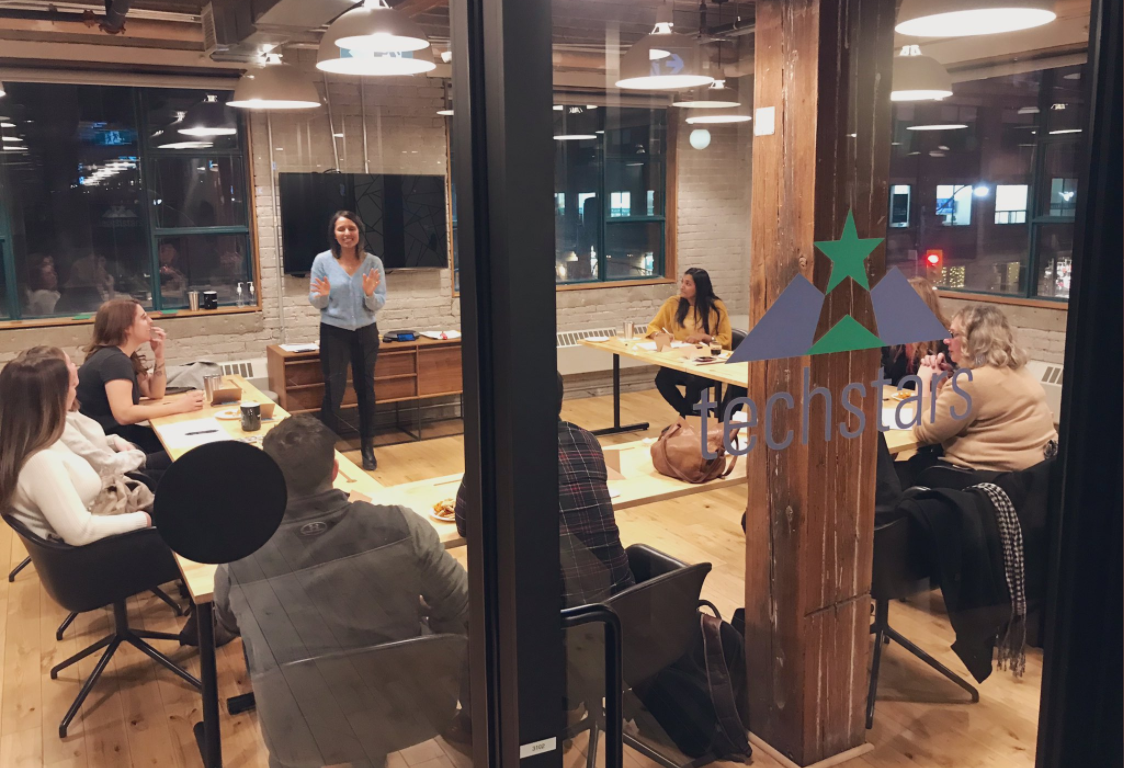
Oh, I love that. Guys, if you’re just joining us, if there’s anything at all that you need to take away from this conversation is to just go check out DimpleMukherjee.com. All of her products, services and things that she offers people can tap into is available there. There’s also a free resource that you can download as well that Dimple was mentioning. And if people want to hang out with you on social media or if you have a newsletter, anything like that, can you share that with us as well, Dimple?
Yes, for sure. So the best place to really get consistent information through me is through monthly newsletter. So I only send out newsletters once a month. I know people are busy, value their time, but my social media of choice is Instagram. Yeah, that is where I show up when I want to show up on social media is the best place to engage with me directly if you want. But I’m always happy to connect. And so those are the two main places would be my website where you actually sign up for my newsletters as well as follow me on Instagram and the free download that I mentioned to you, the Nine Tools. It is also on my website and also on my Instagram. So that’s a fairly new tool and it’s free.
I love that. So for us to finish up our conversation and I’m bringing you back because there are so many things that we touched upon that kind of need a deeper dive. I want to ask you this Dimple. Is there anything you feel that perhaps I missed out on that you want to kind of close the gap on in this conversation? And for anyone just joining us, we’re talking about how to create wellness through using the right tools to change your narrative.
First of all, I don’t think you missed out on anything. I am so grateful for your presence and your curiosity and just the excitement around wellness. I can totally feel that through the screens, and I’m so appreciative of that. So you’ve missed nothing. I will just circle back and just remind the listeners that you have it in you to really create a life of wellness. And while there are people around you that can support you, like your doctors, your therapists, your naturopath, you are ultimately your own master of your body and your mind. And I would love for you to self advocate for yourself and work with these experts to really cultivate wellness. And I think that’s where we need to consider ourselves as equals in this gamut of this team. And you’re on the top. You’re leading it. So that’s what I would like the listeners to know.
“You have it in you to really create a life of wellness. And while there are people around you that can support you, like your doctors, your therapists, your naturopath, you are ultimately your own master of your body and your mind.” ~Dimple Mukherjee
I love that. Guys, go check out dimplemukherjee.com. Go hang out with her on her Instagram. Join her a monthly newsletter, because if nothing else, just the positivity that Dimple radiates that alone is something that is going to help you be able to just kind of find a place to be positive in your own life. Because that’s the other thing that I feel that we’re coming out of right now is reminding ourselves how to be positive and reminding ourselves that it is action-oriented and we are responsible for our happiness. Thank you so much, my darling Dimple. I cannot wait until we have another conversation.
Thank you, Raj. It’s amazing to be here with you.
Thank you. Likewise.
Thank you so much for hanging out with Dimple and I today, folks. I really hope that you got some real value from our discussion and that you understand the importance of being intentional with your wellness journey and incorporating a customized approach to finding the best tools and resources for you.
For more trainings like these, please subscribe to our YouTube channel at The Open Chest Confidence Academy. Go check out our podcast on any podcast platform. Search ‘The Transform Your Confidence Show.’ I also encourage you to go check out my newsletter. It’s at theopenchestconfidenceacademy.com/newsletter and come hang out with me on my social media @rajsgirn and please, take care of yourselves, guys.
To contact Dimple Mukherjee: Web, Twitter, Instagram, Facebook



